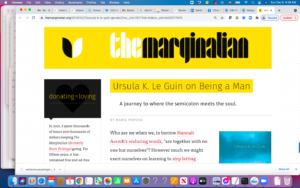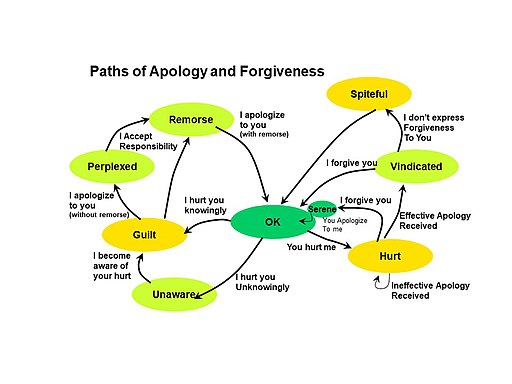Most of these are singable songs that can be used at rallies, though I snuck in a few harder to learn ones that tell really inspiring stories, marked with *, as well as some in other languages. Vaguely sorted but many of these songs could be in multiple categories. Authors’ names included where I have them. These are living songs. You will find versions with different lyrics, verses in different order as they evolve—adapted for new causes or new definitions or new sensibilities. You’ll also find some older works that don’t reflect the nth degree of what’s currently considered politically correct. They were important songs in their time, and part of what I’m trying to do is provide a sense of movement history. You’ll also find some musings about what a particular song means to me, sometimes with a memory thrown in. Enjoy!
The Strength of Ordinary People who “Activize” and Resist
Tyrants Always Fall (Nerissa Nields). When I got depressed during the first DT term, I often turned to this song for comfort. Western Mass folks will recognize the Northampton scenery, as The Nields are local and filmed their video downtown.
Something Inside So Strong (Labi Siffre). The Black Gay British man who wrote it was shocked by a video of South African police shooting into a crowd of anti-apartheid demonstrators—and also drew on his own background growing up gay and marginalized. It’s been widely adapted in the movements both to end apartheid and to gain LGBTQ rights. The couplet “The more you refuse to hear my voice/ The louder I will sing” is the earworm that’s been in my head a lot lately—and what inspired me to compile this resource.
*Denmark, 1943 (Fred Small) documents the incredible night when the people of Denmark rose up to smuggle almost the country’s entire Jewish population to safety in Sweden, just before the Nazis planned to swoop in to arrest and deport them. It has a singable chorus but I wouldn’t try to teach it to crowd that’s never heard it.
Never Turning Back (Pat Humphries). A great zipper song, easy to teach and lead.
Power to the People: We Rise (Laurie Woodward Garcia). Released in June, 2025, this song draws lyrics, energy, and photos from many struggles, including many from 2020 to the present.
If I Had a Hammer (Pete Seeger and Lee Hays). The original lyrics had “All of my brothers.” Decades ago, activist Libby Frank asked Pete at one of his concerts, “Why only brothers?” So Pete discussed it with Lee and they came back with “my brothers and my sisters.” In this version, Emma’s Revolution changed it to the more gender-inclusive “all of the resisters.” We still need to come up with something that has love not just for the resisters but for everyone, without reintroducing the gender binary. Got an idea?
Song of the Soul (Cris Williamson). An anthem of the women’s and lesbian movements, but I put it here because it’s also applicable generally.
Swimming to the Other Side (Pat Humphries). Like Song of the Soul, a song of spiritual renewal.
How Could Anyone Ever Tell You (Libby Roderick). I always thought of this as an LGBTQ community song. Turns out it’s been used in dozens of social movements. You’ll find a long list at the link, as well as several different recordings.
Rebecca Jones (Bob Blue). An ordinary mom steps into her greatness and gives a speech that inspires peace workers. I don’t know if this is based on one real person and one real incident, but I’ve met dozens and there have been tens of thousands of ordinary people who created massive social change, from 11-year-old Malala Yousafzai and 15-year-old Greta Thunberg (ages at the times they became activists) to Doris “Granny D” Haddock and Frances Crowe, both still activists on their hundredth birthdays. Despite dying at age 57, Bob was a prolific songwriter who left behind dozens of great songs. He’s probably best known for the feminist song “The Ballad of Erica Levine,” sung here by Kim Wallach. I’ve heard that one at several feminist weddings.
We’re Still Here (Holly Near). An upbeat, almost vaudevillian celebration of the resistance’s resilience and power.
What’s Going On (Marvin Gaye). That link is to an “official” video, released in 2019 (35 years after Gaye’s death) that includes images and sounds of protests and repression. If you would rather have it straight up, visit https://www.youtube.com/watch?v=H-kA3UtBj4M
LGBTQ
Singing For Our Lives (Holly Near). I love this video because not only do we have Holly’s beautiful rendition as it had evolved by 2004, but hugely inspiring footage of the massive march for women’s reproductive rights where she performed it. And some new lyrics put up at the end of the video. Holly literally wrote this song while carpooling to San Francisco to protest the murder of San Francisco Board of Supervisors member Harvey Milk—one of the first openly gay politicians in the US—and Mayor George Moscone by a right-wing homophobe. The driver, Holly herself, and a few others discuss the song’s origins and power in this short video.
*Scott and Jamie (Fred Small). Another true-story ballad from I Will Stand Fast (the same album as Denmark, 1943). How, in the 1980s, a gay male couple provided a loving, nonjudgmental home for two abused brothers only to have them ripped away by a homophobic government. Glad we have made big progress on this issue, at least.
*My Name is Joanna (Flight or Visibility). Misgendered once too often, my nonbinary younger child, a professional musician and music educator who also runs a school for social justice, wrote this after an encounter with a particularly clueless server in a cafe. Language warning: One f-bomb in the last line.
*When I Was a Boy (Dar Williams). A gender-bending song from the early 1980s that amazingly enough, I discovered because my local commercial FM rock station played it regularly! I very much identify with this song, especially the ending.
Thank You Anita (Charlie King). Released back in 1979, King counters Florida orange juice spokesperson Anita Bryant’s very public homophobia by saying she united people who hadn’t worked together before but now were joining forces to oppose her bigotry.
Peace
Oh What a Grand and Glorious Feeling (I think this is traditional, but it could have been written by Earl Robinson, who I learned it from at a house concert around 1978. Since then, I’ve taught it at many sing-alongs and rallies. I didn’t find a recording, just the lyrics, but the tune is the same as Oh How Lovely Is the Evening.)
Last Night I Had the Strangest Dream (Ed McCurdy). My folk-music-loving 4th grade teacher taught us this song and many other great ones!
*The Hammer Has to Fall (Charlie King). This song actually changed the way I felt about property-destruction civil disobedience that resulted in long prison terms. I used to resent the Ploughshare 8 for removing themselves from activism for decades. This song humanized them for me and touched my soul deeply.
Imagine (John Lennon). I could have put this in the general resilience category, or made a new section on visioning. But I’m putting it here because of the second verse that contains both “Nothing to kill or die for” and “Living life in peace.”
Safe Energy/No Nukes
Acres of Clams (Charlie King). Theme song of the Clamshell Alliance’s 1977 Seabrook occupation (one of my proudest moments in 55 years of activism).
We Almost Lost Detroit (Gil Scott-Heron). You may have never heard of the 1966 accident at the Enrico Fermi nuclear plant in Michigan, or the one at Browns Ferry in Alabama in 1975—or dozens of other near-calamities. Gill Scott-Heron helps us remember Fermi. By the way, I am convinced that the reason we DID hear about Three Mile Island, Chernobyl, and Fukushima while most of us have not heard of more than 100 other serious nuclear accidents was because of the safe energy movement, which inspired the movie, The China Syndrome, that came out right before the TMI accident. Lyrics.
US Civil Rights Movement
Oh, Freedom (traditional). I love Odetta’s version but could only find it as part of her Freedom Trilogy, so I went with Harry Belafonte’s.
I Ain’t Scared of Your Jail ‘Cause I Want My Freedom. From Pete Seeger’s 1963 Carnegie Hall concert, one of my favorite albums ever. More of this is telling the story than singing the very short song. But only Pete’s own recording turned up in a search.
We Shall Overcome (many authors over multiple generations). The anthem of the Civil Rights movement, carried over to many struggles since—in part, because it’s a “zipper song” where it’s easy to add new verses. Great article on the history of the song from Encyclopedia Britanica.
Ain’t Gonna Let Nobody Turn Me Around (adaptation of a traditional Black gospel song). This performance by civil rights activists the Freedom Singers doesn’t have a date, but according to this university curriculum citation, it can’t be older than 1962 or newer than 1980. My guess is sometime between 1962-65. I think I first heard it at a community rally in Atlanta when I lived there briefly in 1976, during a college internship at a socialist community newspaper.
Immigration and Immigration Justice
Yes I Am (American) (Malini D. Sur, MD). This 2010 song joins Brown, Black, Yellow, and Red people through the common experience of coming from someplace else—even if it was 10,000 years ago across the Bering Strait.
Mexican Chef (Xenia Rubinos) celebrates the jobs immigrants, especially Latines, do for people in the US and how our society would grind to a halt without them. I could do without the fake-sexy dance moves, though.
Where You Go (I Will Go) (Shoshana Jedwab). Based on the Old Testament Book of Ruth, one of the earliest voluntary migration stories we have. The Old Testament contains many migration stories across many centuries: Adam and Eve leaving the Garden, Abraham leaving Iraq and later experiencing several temporary migrations, Hagar and Ishmael forced into the desert, climate refugees Jacob and his adult children seeing refuge in Egypt, where he reunites with Joseph, the son he’d been told had been killed, Moses and later Joshua leading the Israelites out of slavery…I’d say these migration stories contain a lot of the power in those texts.
Deportee (Woody Guthrie, words; Martin Hoffman. music). The ugliness of US immigration policy is nothing new; this song was written following the death of a plane full of migrants in 1948. Judy Collins’ voice is achingly beautiful.
Using the same melody and parallelling the lyrics, Yosl Kurland ties together the tragedy of the Ashkenazi (Northern European) Jews aboard the St. Louis—which was refused entry by several countries including the US, and most of whose passengers were killed in the Holocaust after being sent back to the country they’d sailed from—and the modern tragedies of refuges from the Middle East, Afghanistan, and Latin America still being turned away or imprisoned or abandoned, in a powerful 2017 update called Refugee.
Leaving Mother Russia (Robbie Solomon). A song written for Natan Sharansky in the 1970s, when he was imprisoned for Jewish rights activism by the USSR.
*Revelación (Genie Santiago). Bilingual English/Spanish rap with lots of images of protests and of people trying to cross the border. Like so many immigration songs, this could also go easily into the Class section.
*Immigrants (We Get The Job Done) (Lin-Manuel Miranda). A remix with pieces from various songs in his musical, Hamilton. Lyrics here.
Running (Refugee Song) (Keyon Harrold, Andrea Pizziconi, and Jasson Harrold) describes the hard life in refugee camps—and why they had to flee in the first place.
American Land (Bruce Springsteen). With a rollicking Irish melody, Springsteen contrasts the dreams of wealth and ease shared by so many immigrants in the 19th and early 20th centuries with the harsh realities they found here. This version, appropriately, was filmed live in Dublin. Also of note are the words Springsteen speaks at a 2025 concert in Manchester, UK before singing Land of Hopes and Dreams (another song from the same album).
Kilkelly, Ireland (Peter Jones). A 19th-century Irish farmer dictates letters to his son living in the US across several decades. This hauntingly beautiful song reminds us that until quite recently, people who emigrated left behind loved ones and had only very slow postal mail to keep in touch. And despite the magic of video calls and emails, what’s still true today is that for many, there is no going back.
Class, Labor, and Economic Justice
This Land is Your Land (Woody Guthrie). In 1975, I found myself co-leading a march of several thousand people through the streets of Washington, DC, playing this song on harmonica along with a violinist, a kazoo player, and I think a guitarist. Not only didn’t we rehearse, I had no idea I was going to be drafted into this impromptu marching band. The two string players were also singing. That day was memorable both because it remains the only time I’ve ever performed music for an audience (other than teaching “Oh What a Grand and Glorious Feeling”)—because it was the first time I heard the long-suppressed politically progressive “secret” verses. I used to own an LP where you could actually hear the needle scratch as it was pulled away to cut those verses out of the master. Guthrie wrote hundreds of lyrics but to the best of my knowledge, never wrote a tune.
This particularly moving performance is led by Pete Seeger, less than four months before he turned 90, with some help from his grandson Tao Rodríguez Seeger, Bruce Springsteen, and a mostly Black chorus—recorded at the Lincoln memorial during Obama’s inauguration concert.
Talkin’ About A Revolution (Tracy Chapman). Chart-topping class-based anthem about those who are “…standing in the welfare lines/
Crying at the doorsteps of those armies of salvation”
Is This the World We Created? (Freddie Mercury and Brian May of Queen). A British comparison of desperate hunger in the Global South with “a wealthy man…sitting on his throne.”
Step By Step (Words from a 19th-century union rulebook; music by Pete Seeger). We are strongest when we work together.
Brother, Can You Spare a Dime? (Yip Harburg and Jay Gorney). Written in 1932 during the Great Depression and a hit for both Bing Crosby and Rudy Vallee, it starkly illuminates the way corporate greed casts aside those who built that wealth. This much more recent version, soulful if a bit overblown, is by George Michael. Good backgrounder on the Kennedy Center website. In case the MAGAs have taken it down, this is the most recent version (April 12, 2025) on Archive.org. BTW, Harburg is a major Broadway songwriter probably best known for songs like “Somewhere, over the Rainbow” and “It’s Only a Paper Moon.”
I’m Changing My Name to Chrysler (Tom Paxton). A scathing response to the bailout of US automakers during the Carter years (not to be confused with the similar bailout under Bush II). Arlo Guthrie recorded the song when it was new, then recorded it with Tom’s updated lyrics for this 2008 Farm Aid benefit.
We Gotta Get Out of This Place (Barry Mann and Cynthia Weil). Hard-rocking ‘60’s hit about love amidst terrible working conditions.
Liberation Struggles Around the World
*Would You Harbor Me? (Ysaye Barnwell, USA, of Sweet Honey in the Rock). A beautiful song asking the title question about a wide range of people who are part of oppressed groups.
Woyaya (Sol Amarfio, Ghana, of Osibisa). You may know versions by Art Garfunkel or the Fifth Dimension. This is the composer’s band, Osibisa, from 1971.
Si se calla el cantor (Horacio Guarany, Argentina). “What will become of life if the Singer/Does not raise his voice in the stands/For those who suffer, for those for whom there is/No reason that condemns him to walk without a blanket.” Full lyrics and translation here.
Mbube (Solomon Linda, South Africa). Americanized as Wimoweh/The Lion Sleeps Tonight, this was a huge hit for the Weavers in 1951 and again 11 years later for the Tokens. This version by Ladysmith Black Mambazo is closer to the original but with lots of unique LBM touches. And this is very much what a local Black chorus sounded like when we heard them play this song on the streets of Cape Town. There is an upsetting chronicle about the way Mr. Linda was defrauded of proper compensation on Wikipedia.
Falasteen Biladi (Hamood Alkuder). A Palestinian cries out for justice in Gaza. Arabic with English subtitles.
Zahrat al-Mada’en (Assi Rahbani, Mansour Rahbani). The Palestinian narrator mourns the isolation from Jerusalem (whose name literally translates as “city of peace”), beloved by both Palestinians and Jews. Performed here by Fairuz. Translated lyrics here. For a Jewish perspective, listen to Ben Snof singing “If I forget thee, O Jerusalem” from Psalm 137 (many translations into English here). Interestingly, the same Biblical psalm also contains “By the Waters of Babylon,” another song of exiles longing for their homeland.
Resources
This list of 50 songs is a drop in a roaring river of great social change music. Find more in the songbooks Rise Up Signing and its second volume, Rise Again, compiled by Peter Blood and Annie Patterson, in We Rise: A Movement Songbook available for no-cost download, at the websites of Peoples Music Network and Sing Out magazine, at this Spotify playlist, and on the websites of many of the authors and performers.
Thank-yous to the many people (alphabetically) who suggested songs:
Janet Beatrice
Stephanie L.H. Calahan
Donna Cooney
Lisa Diaz
Raf Horowitz Friedman
Luis-Orlando Isaza Villegas
Riqi Kosovske
Yosl Kurland
Lauchlan Mackinnon
Oscar Martinez
Marcia Miller
Amanda Risi
Andrea Rudnik
Phil Stone
Sandy Sulsky
Melody Tilton
Dianne Turausky
Debbie Ward
Cat Yuraka






